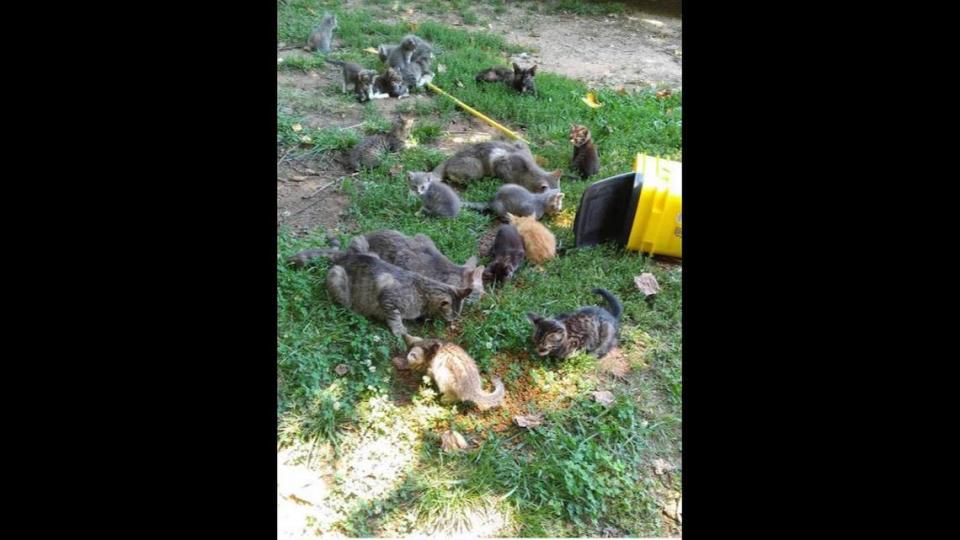NC woman loved her 57 feral cats. After her death, property owner wanted them gone.
The elderly Mooresville woman had the best of intentions, Abigail Jennings can say with certainty now.
Friends described her as kindhearted, which is why the woman would never have shooed away the hungry feral cat that showed up in her yard, Jennings said.
Or, soon enough, the second one.
Before the woman knew it, more cats and kittens dropped by. And then, even more.
She never turned a single one down.
Not the one people later named Miss Lady. Or Casey. Or Fluffy. Not Rusty or Mama Kitty.
In less than a year and a half, 57 cats and kittens called the woman’s yard home.
The population “had exploded,” Jennings said.

Then the woman died, with no one left to care for the new residents.
The property owner wanted them gone. Immediately, Jennings said.
Had Animal Control showed up recently, the cats and kittens would have been trapped and carted to the county animal shelter for an uncertain fate, Jennings said.
Such feral arrivals “are too often labeled unadoptable and euthanized,” Jennings told The Charlotte Observer in an email.
Help for cats
But volunteers with Lake Norman Lucky Cats, the nonprofit cat rescue organization Jennings founded and serves as president, showed up, too.
They trapped them and placed friendly cats and kittens for adoption, Jennings said, in partnership with two other local nonprofit animal welfare groups, Lake Norman Humane and Maggie Mayflower Rescue.
Caretakers took the cats in and got them spayed or neutered, rabies and distemper shots and any needed medical care.
They gave them food, water and shelter, Jennings, who is also president of Lake Norman Realty, told the Observer.
“These cats are truly Lucky Cats,” she wrote.
Need is great
Lucky Cat has helped thousands of cats in the region in its more than 20 years, but ”the need remains great,” Jennings said.
The COVID-19 pandemic has significantly increased the feral cat population, Lucky Cat Executive Director Robin Byrd said.
“Due to pandemic-related shortages, veterinary spay/neuter services have been limited, resulting in an explosion in community cat and kitten populations,” she said.
Rising clinic fees also play a role, Jennings said.
All of which is why she calls this year’s annual fundraiser by her organization “one of the most critical in our history. Funds are needed more than ever to continue our work in light of rising clinic fees and the COVID cat population explosion.”
The Fall Fix-a-thon Raffle has a $25,000 goal to cover the costs of 250 community cats, “and we hope to help even more through the generous support of the community,” Jennings said.
Woody
As the Mooresville case shows, “feeding a stray cat is a kind act, but feeding and not fixing can turn into a serious problem,” Jennings said.
Not all of them survived, she said.
A kitten the volunteers named Woody had Bot fly, or cuterebra, larvae removed from his neck. He weighed only a pound, was malnourished “and, unfortunately, he was too far gone to recover,” Jennings said.
“But at least his final days were in love and care vs suffering alone on his own,” she said. “Many other cats and kittens would likely have shared this fate without our intervention.”

